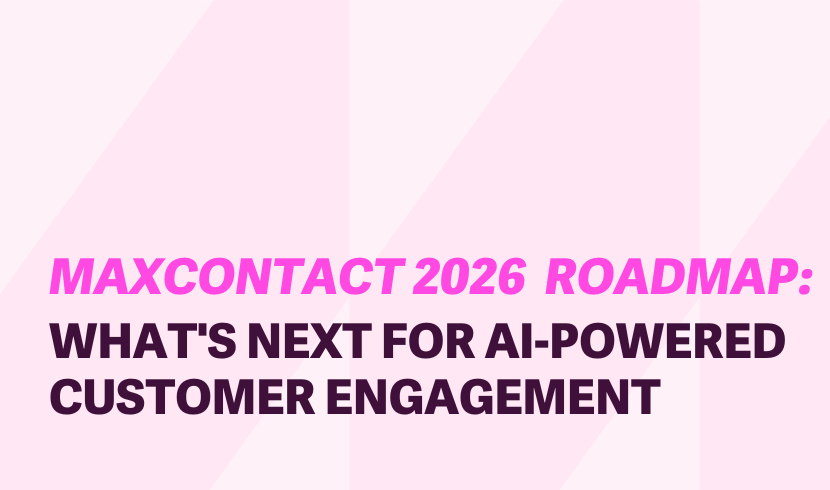Training call centre agents feels like an uphill battle.
With staff turnover at 30.2% annually, onboarding never stops. And when agents leave, the pressure piles on—remaining staff take on extra work, while new hires are rushed through training.
And yet, many call centres still rely on outdated training methods that don’t prepare agents for real-life conversations:
- Classroom sessions cover hypothetical scenarios, not everyday challenges.
- Shadowing and coaching are inconsistent and depend on the trainer’s style.
- Manual call reviews cover only a fraction of conversations, leaving big blind spots.
These methods take too long, aren’t scalable, and fail to build agent confidence.
The result? Underprepared agents, longer call times, and frustrated customers.
If you’ve ever scrolled through call centre forums, you’ll find plenty of agents venting about poor training at (some, not all) call centres:
“My last job offered zero training. I was told to report to the call centre, but the trainer never showed up. I kinda bounced around a couple of days until I started taking calls by myself.”
“When I started taking calls, I had to put people on hold because I didn’t know what I was doing. If I was given examples of real customer calls instead of just the easy stuff in training, I wouldn’t have had to put customers on hold to ask questions.”
But what if training could be smarter? What if AI could personalise coaching, identify struggling agents faster, and automate quality assurance?
That’s where conversation intelligence comes in.
What is conversation intelligence – and why does it matter?
Conversation intelligence is AI-powered speech analytics that captures, transcribes, and analyses 100% of customer interactions in a call centre.
Instead of relying on manual quality assurance (QA) reviews of random calls, conversation intelligence provides complete visibility into agent performance.
Through AI-driven insights, this technology does more than just record calls. It highlights patterns, detects training gaps, and automates coaching recommendations.
And yet, 61% of call centres don’t use it. (Benchmark Report)
How conversational intelligence transforms call centre training
Trainers waste hours on call reviews – AI speeds things up.
For call centre trainers, conversation intelligence changes things. Instead of spending hours reviewing calls manually, they can focus on what really matters; coaching agents to perform better.
- Reduces their manual QA workload: Auto QA means no more spending hours reviewing call samples at random.
- Helps them see exactly where agents struggle: AI highlights common mistakes and weak points.
- Improves the effectiveness of training: Data-driven coaching helps agents improve faster.
- Speeds up the onboarding process: They can give new hires personalised training insights and real examples from day one.
With conversation intelligence, trainers can focus on coaching, not admin.
MaxContact’s Spokn AI: A smarter approach to conversation intelligence
MaxContact’s Spokn AI and Success Intelligence helps call centre trainers spend less time reviewing calls manually, and more time delivering impactful coaching that helps agents succeed.
1) Find training opportunities easily
You don’t have time to manually review every agent’s performance. But when you’re reliant on random call samples, many coaching opportunities get missed.
But what if you flip the process? Instead of listening for issues, conversational AI lets you search for them through keywords or flags calls with negative sentiment.
Here’s what the outcome would look like:
- AI identifies common mistakes; missing compliance scripts, failing to handle objections, or struggling with customer queries.
- Instead of waiting for a random performance review, conversational AI helps to find calls that need attention quicker.
- Make training data-driven, giving agents the right coaching at the right time.
STAT: 37% of call centres don’t provide agents with weekly feedback, slowing down development.
2) Manual QA slow and limited? Get better insights with Conversational AI
Traditional quality assurance is slow. Managers only review a handful of calls, so feedback is delayed and inconsistent.
- Speech-to-text technology transcribes 100% of calls, making them easy to search and analyse.
- Keyword tracking and sentiment analysis let managers proactively search for compliance issues and poor-quality interactions.
- QA teams can assess more calls in less time, leading to better insights into agent performance.
STAT: Only 20% of call centres manually evaluate more than 21%-30% of weekly calls.
3) Stop the guesswork: Give agents bias-free feedback
Performance reviews in call centres often rely on a manager’s personal observations, which can be inconsistent, biased, or based on too small a sample of calls.
While one agent might get detailed coaching from their manager, another gets generic feedback that doesn’t go far enough to address their actual weaknesses.
Feedback that misses the mark
Scenarios
Michelle and Tom work in the same call centre.
Scenario 1: Michelle’s manager listens to three of her calls and notices she sounds hesitant when handling objections.
The feedback?
“Be more confident.” But she doesn’t get specific guidance on how to improve.
Scenario 2: Tom’s manager is too busy to review his calls, so he gets vague, general feedback.
The feedback?
“Work on your customer interactions.” Even though his real issue is rushing through compliance scripts.
The likelihood of Michelle and Tom improving their call outcomes with this feedback is slim, as they have no clear understanding of what they need to change.
With conversation intelligence, this kind of vague and subjective feedback disappears.
AI-powered coaching tools, like our Success Intelligence feature, analyses performance objectively, giving managers real insights based on every agent’s actual calls.
Conversational AI continuously monitors:
- Talk/listen ratios – Is the agent dominating the conversation, or do they allow room for customers to engage?
- Objection handling success – Does the agent navigate customer pushback, or do they lose the sale?
- Customer sentiment analysis – How do customers actually feel after the interaction? Do they leave feeling satisfied?
This level of data insight shapes coaching that is specific, fair, and effective. Agents always know where they stand, what they’re doing well, and what they need to improve, without the frustration of inconsistent feedback.
4) Improve agent onboarding with AI-driven insights
It’s not just ongoing training that conversational intelligence can positively impact.
For new agents, onboarding can feel like being thrown in at the deep end. With most training reliant on theory-based learning, agents are left unprepared for real-life calls.
Conversation intelligence makes onboarding practical and personalised.
- New hires can listen to real, top-performing calls, rather than outdated training scenarios.
- AI helps managers to identify high-performing agents so new hires can shadow and learn call techniques from the best.
- Conversational intelligence speeds up the onboarding process without cutting corners, so agents feel more confident handling live calls sooner.
Poor training drives turnover, increases call times, and frustrates customers.
With Spokn AI and Success Intelligence, call centres can train smarter, coach better, and build more confident teams.
Want to see how conversation intelligence can transform your call centre training?
Start coaching smarter. Book a demo today



%2520(2).png)

.png)
